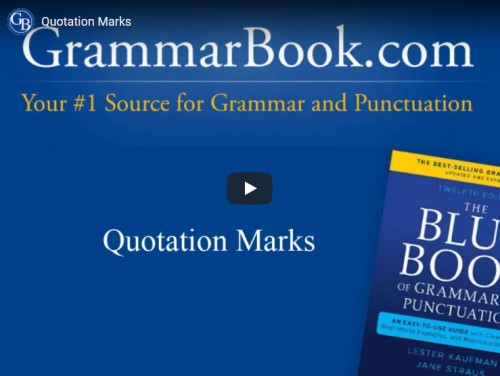|
Cancelled or Canceled: Which Is Correct?
|
|
Let's say you notice it's raining so you decide not to visit the beach with your friends. Have you cancelled or canceled your plans? The answer might surprise you.
Why Cancelled and Canceled Are Both Technically Correct
Although many teachers and editors would prefer cancelled over canceled, the truth is that both are technically correct. Either spelling could appear in a dictionary, and both are perfectly fine to use.
However, that doesn't mean you should always use either version interchangeably. As it turns out, one is more popular than the other in American English.
The Difference Between Cancelled and Canceled
Both words mean the same thing and have the same origin.
Cancelled is the original spelling, but you typically wouldn't use it in American English. Cancelled (double "l") is the preferred spelling in the United Kingdom, while canceled (one "l") is the preferred spelling in the United States.
Such spelling variations can be common in the language we share with our friends across the pond. Just as Americans visiting England might see some words as being spelled differently from their own, so might our usage appear distinct to those whose English is learned in Commonwealth countries.
So Which One Should You Write?
Because canceled and cancelled are pronounced the same way, you'll notice their difference primarily when they are spelled out. In that case, you can probably maintain your American-ness by using the single "l" version of canceled unless you have a good reason to choose differently.
You might ask why you would do that if both words mean the same thing and are technically correct in spite of their spellings. Here are a few reasons:
Some teachers, professors, and employers might not know that either version is correct (as you do), and they may think that your alternate spelling is wrong.
In some cases, using an alternate (but acceptable) spelling can draw undue attention to the spelling and detract from your point.
It's possible that certain spell-checking software packages may flag your spelling as having an error even when you are technically correct. |
Simply stated, it's easier to follow prevailing usage as it concerns minor points of spelling and grammar as long as you are correct.
|
View and comment on this
article on our website.
|
|
|

|
 |
The Blue Book of Grammar and Punctuation
by Lester Kaufman and Jane Straus |
The Authority on English Grammar! Twelfth Edition Now Available
An indispensable tool for busy professionals, teachers, students, homeschool families, editors, writers, and proofreaders.
Available in print AND as an e-Book! Over 2,000 copies are purchased every month!
To order the book, simply click the link to order the book from the GrammarBook.com website.
|
Free BONUS Quiz for You!
[[firstname]], because you are a subscriber to the newsletter, you get access to one of the Subscribers-Only Quizzes. Click here to take an Identifying Adjectives Quiz and get your scores and explanations instantly!
We will be adding many more quizzes this year to our already substantial list of them. If you have suggestions for topics we have not yet covered, please send us a message at help@grammarbook.com.
|
Hundreds of Additional Quizzes
at Your Fingertips
Subscribe now to receive hundreds of additional English usage quizzes not found anywhere else!
Teachers and Employers
Save hours of valuable time! You may assign quizzes to your students and employees and have their scores tallied, organized, and reported to you! Let GrammarBook.com take the hassle out of teaching English!
"Fun to test my skills."
"The explanations really help ... thanks!"
"I can select the quizzes to assign to my students, and then the results are reported to me automatically!"
If you think you have found an error in a quiz, please email us at help@grammarbook.com
|
Wordplay
Most of us are fascinated by palindromes, words or phrases that read the same forward and backward. A famous one that most of us have heard is:
"A man, a plan, a canal—Panama!"
Here are a few we recently ran across:
Never odd or even.
A nut for a jar of tuna.
Borrow or rob?
Was it a car or a cat I saw?
|
 |
English in a Snap:
68 One-Minute English Usage Videos FREE |
Learn all about who and whom, affect and effect, subjects and verbs, adjectives and adverbs, commas, semicolons, quotation marks, and much more by just sitting back and enjoying these easy-to-follow lessons. Share them with your colleagues (and boss), children, teachers, and friends as well! Click here to watch.
|
|




